#analysis of comparison
Explore tagged Tumblr posts
Text
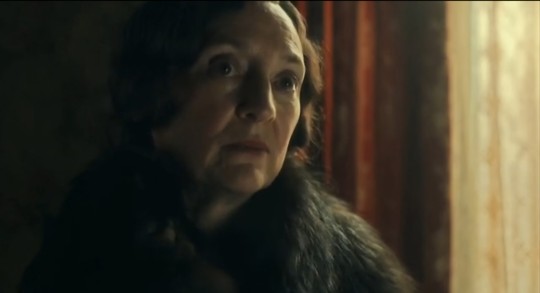
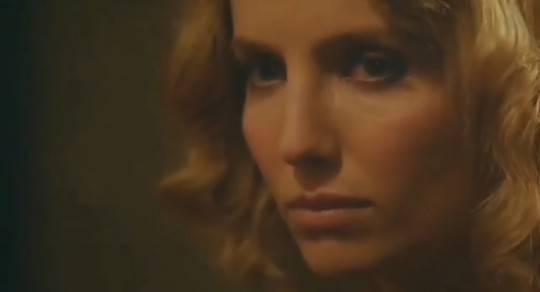
Mrs. Audrey Changretta VS Mrs. Grace Shelby
These ladies of Italian mafia and British gangsters have interesting similarities I found:
1. A "Good" person who has job with charity.
-Audrey was a school teacher who led students into good way as Arthur and John remember.
-Grace Shelby (née Burgess), who already knew how cruel warfare was to ordinary people during the period of being an operative, had an idea to found an institute for orphans and worked as a philanthropist.
2. A strong-minded beauty who stole the boss's heart
-Vincente and Audrey had good marital relationship as they didn't want to seperate by Arthur and John. After all of it, Audrey faced Tommy Shelby alone and provoked.
-Grace is the one and only true love of Thomas Shelby. Grace and Tommy had missed each other for more than 2 years and happily married. Grace has guts to go to Black Swan Inn to invastigate her enemy alone, face Tommy blooded after killing a member of IRA and stay beside him, have tense discussion with Polly, May, and Tatiana and doesn't let them humiliate herself, and choose to follow her heart to love Tommy NOT her husband.
So, what I expect to watch in Grace alive AU is a scene Grace and Audrey have conversation to discuss as ladies of their families, wives of men who lead their own gangs, and mothers of children. Before they end off their conversation, Audrey would ask: "Who do you think you are, young lady?"
Then, Grace would give attack back as she answers as below: "Don't forget this, Mrs. Changretta. I'm NOT asking for favors. I'm asking for FUCKING deal."
#peaky blinders#grace shelby#grace burgess#audrey changretta#ladies of gangster families#la bella mafia#what if#grace alive au#women talk#analysis of comparison
12 notes
·
View notes
Text
It's interesting how intention and public perception factor in the reception of the axe vs. the berries stunts.
Haymitch did not intend to use the force field as a weapon. He wasn't trying to outsmart anyone, he was just trying to get to the edge in hopes it would give him an advantage.

He didn't even remember the force field until after it aided him. He didn't intend to outsmart the Gamemakers, but Katniss did.

And it's likely why he knew he had to pitch the berries stunt as an emotional lapse in judgement or at least, hoped it would work.

He knew she intended to outsmart the Gamemakers, but he also knows what happens first hand when intention is assumed, and he wasn't going to let Katniss and Peeta's families die.
Even if he didn't intend to outsmart the Gamemakers, even if his goal was just to live, to the capitol, the axe was calculated no matter if it actually was or not.
The difference being Haymitch didn't have propaganda on his side. To the audience, he was a smart rascal who knew how the force field worked, so he must have meant to weaponize it by dragging Silka over to the edge. it doesn't matter what he was thinking at the time, because the footage, the narrative, shows otherwise. he lost the war of public opinion from the second he crafted his image in the interviews.

But Katniss, the giggly, dress-twirling girl, how could she ever intend something like that?
#the hunger games#thg#sunrise on the reaping#haymitch abernathy#sotr#katniss everdeen#sotr spoilers#peeta mellark#thg analysis#thg comparison essays
1K notes
·
View notes
Text
I feel a lot of the time we don’t consider the fae perspective. We mostly consider the human’s. Which, yes, of course because we are human.
But in a story like twst, where so many characters are relatable human or not, I think it’s a bit unfair to not consider their perspective.
The main one I’m thinking of right now is how we tend to criticize Malleus and his not being able to keep track of time.
We’ve been told that he has trouble keeping track of time, and in general, many of the fae do. To them, time moves different (not to mention how it can differ depending on species), but for Malleus it’s much more than that.
Malleus has been locked up in the castle for years. He got visits from Lilia and he looked foward to that. Beyond that? It was the same every single day. He was alone. Think about it. For us, we would get tired and bored of that. Time would move slowly. We would want to escape. But Malleus couldn’t. He was trapped there, making the most of it when he hid and when Lilia visits. To him, those moments of fun didn’t last long at all and the moments of melancholy lasted forever.
On a side note, we’ve seen how long it took Lilia to adapt to humans too, about 200+ years. (He’s still adapting now. He’s somewhat better at it now because of Silver and Sebek. Who are more day creatures and he had to adapt to that as well. Even though it’s still tough on him). So how can we expect the same from Malleus, when it took even Lilia this long to do it?
When Malleus grew older and he was able to escape, time moved quickly for him. He was able to spend time with Lilia and others. He had fun and freedom. To him, time sped up. Silver and Sebek age quickly. Malleus had trouble with how fast it was. Even in his dorm card he mentions how quickly they’ve grown.
But then, you also have to consider, Malleus is a fae, he’s abided by fae time for over a century and it was only recently (at least 17 years), that he tried to adapt to human time. From seeing a babe grow to now at NRC, where school is taught through human time. How can we expect him to suddenly adapt so quickly?
I wouldn’t be surprised that besides some of the fae, other beastman or merman might have more of a nocturnal clock too.
We expect him to adapt to humans but when has any of them helped him to adapt? When we ask things of others, don’t we usually try and meet half way?? Isn’t it selfish to always one-sidedly ask him to change?? And not help him achieve the change we are asking for?
It’s one thing for the rest of dia group to help him, and they try. But it’s another, when the humans don’t even try when Malleus is trying to get along with them and make a connection with them for peace between everyone. Even more so, he wants to get along and have friends too.
And then?? They get angry? At him?? For not adhering to their ways, but did they help him? Did you remind him? Or even send the invite at all? Or were you too scared and it’s easier to blame?
He’s known to arrive in advance hours before a meeting so he doesn’t miss it because he does care and he does want to attend. But where are the people to meet him half way? To remind him or even give him the proper or updated info?
It’s a two way street. We can’t always judge malleus because of his “bad” traits, when in reality, it’s a fae thing can we?
You can argue that it’s not others jobs to do that. And yeah you’re right, but then we have seen dorm leaders go out of their way to help others haven’t we? Riddle going after Idia is one example.
And if there is to be peace, then both humans and fae have to work together to understand the other.
I think it’s unfair to always expect Malleus to change without understanding his background and his childhood and how that changes his perception of time.
#not the best comparisons but we don’t expect animals like dogs to adapt to our time right??? so how can we expect faes#who have stated that time moves different for them#and when they try to change and it doesn’t fit the humans criteria??#why criticize?? when they are trying???#and the fact they are trying?? after a war with them??#please I think there’s a limit to how selfish people can be and need to be more considerate#of them especially since the war is relatively recent to them in fae years#the same goes with malleus and he's trying to change in a short amount of time compared to his long life#we don’t focus on all the changes he has done for humans#no wonder he does everything for Lilia when Lilia shows him affection and approval 💞💞😭😭#lilia vanrouge#malleus draconia#diasomnia#twisted wonderland#twst analysis#twst character analysis#twst malleus draconia#twst lilia vanrouge#dtw#twst wonderland#disney twisted wonderland
276 notes
·
View notes
Text
Thinking abt the parallels between Luka and Adrien (+ their daddy issues)
Physically vs. Emotionally absent dads
How they both play their dad’s instrument
How they both wear their dad’s merch
How they both had preconceived notions of their dad before knowing it was Their Dad™ (Jagged Stone as Luka’s favorite artist and Hawk Moth as Adrien’s literal archenemy)
How Luka was abandoned and refuses to abandon others + How Adrien had to earn his father’s time and thinks he has to earn everyone else’s
= How they both are ASS at setting boundaries because of it
How (super randomly btw) the girl they dated happened to design things for their dad
^ How Gabriel didn’t even remember Mari despite her having a very active role in Adrien’s life, while Jagged Stone was closer to her than he was to his son
How Luka’s dad isn’t really ‘gone’ like Adrien’s mom is, but Adrien’s dad isn’t really ‘present’ like Luka’s mom is
^ How they’re both a living reminder of their ‘gone’ parent (dyed hair/blue eyes, blonde hair/green eyes) to their ‘present’ parent
+ Also think it’s neat how their outfits contrast (black vs. silver ring, white vs. black shirt, blue vs. blond hair); opposites, yet not opposite at all.
#miraculous ladybug#adrien agreste#luka couffaine#comparison#just thoughts#my post#ml analysis#analysis#lukadrien#kinda
641 notes
·
View notes
Text
batman & robin - "trust your partner to catch you when you fall"


"just close your eyes, remember your training... and trust your partner to be there for you." batman/nightwing: bloodborne (2002)

"what know what the key is to a good trapeze act? letting go... trusting that there's someone on the other side to catch you." detective comics (1937) #1074

"i always know the hands that will catch me." nightwing (2016) #100

"...because i've always had someone to catch me if i fell." nightwing (2016) #79

batman: legends of the dark knights (1989) #100

"i got you, kid. i won't let you fall--" nightwing (1996) #105

"when we were up on those ropes, there was no mom, no dad, and no son. we were partners... we were equal. each one of us made sure the others didn't fall. i didn't get to keep my promise. and i know i swore an oath to you... i know that this is dangerous. but just like my parents, we're more than partners... we're family. and i'm never going to let my family fall again." batman: urban legends (2021) #23

"and yet, watching them... their trust... he saw something for the first time." the boy wonder (2024) #1

"i've got you." nightwing (1996) #25

"you okay, robin?" the boy wonder (2024) #1

"we aren't just there to catch batman before he falls. he catches us." robins (2021) #5

"you caught me?" "always." batman: shadow war omega (2022) #1

"my job isn't to train you to make the same decisions i'd make. my job is to catch you, until you decide for yourself." batman and robin eternal (2015) #22

"robin! hang on!" "come on, girlie! reach! farther! or get ready to do the gotham splat! i got it! now hang on, and pray he can hold us both. but he's batman, so of course he'll hold us. it's official! i love this man!" robin (1993) #128

"out on the precipice. about to leap. knowing someone would catch you. not your mother. not your father. someone with a foot in the dark. just like me. someone who used fear as a weapon. batman." nightwing (2016) #2


"robin!" nightwing (1996) #? (written by devin grayson)

gotham knights (2000) #1

"dick. i didn't fall. i jumped. i jumped because i knew you'd catch me." nightwing (2016) #8

"and i try to pay bruce wayne back by doing for others what he did for me. by being their net. by catching them before they hit the ground." nightwing (2016) #1

batman and robin (2009) #9


red robin (2009) #12

"how'd you know? how did you know i'd be there to save you?" "you're my brother, dick. you'll always be there for me." red robin (2009) #12

"it's all right. everything's all right." "i just... wanted to... help." gotham knights (2000) #58

batman/superman worlds' finest (2022) #6

"but the trapeze is not a solo act" detective comics (1937) #1074

"it's always been about catching people when they fall." nightwing (2016) #29

we are robin (2015) #7
#the fact that i have wayyyy more but i cant fit them bc 30 image limit.#can you tell im normal about them#i was going to provide analysis but im too tired#know that the ones with no quotes are equally as important#i love them so much guys#something so striking about the way they do family partnership trust and devotion etc etc like i eat it up#all the safety net stuff all the trust your partner to catch you stuff like all of it#if its visual comparisons or outright said yk. i find them and i have a whole ass spreadsheet#i'll do a part 2 if people like this#bruce wayne#batman#dick grayson#robin#nightwing#jason todd#red hood#tim drake#red robin#stephanie brown#spoiler#batgirl#damian wayne#dickbin#jaybin#timbin#stephbin#damibin? idk what people call him#batman & robin#my posts#dc comics
222 notes
·
View notes
Text
I haven't seen anyone say this so I will. Bucky and Bob's story's parallel each other the same way two chapters follow each other
They both had pasts rooted in violence: Bucky grew up at the end of the first world war and ended up fighting in the second world war. Bob grew up in a house that was constantly filled with domestic violence and abuse
They both became human weapons, they differ here with Bucky's being involuntary and Bob's being semi-voluntary if ill informed: They were both experimented on with alternative versions of the super soldier serum that for better or worse turned them into super-powered beings
They both were taken advantage of: Bucky was abused and used as a weapon with his humanity completely discarded and Bob was used for press for Valentina's attempt to make it big in a world that was slowly loosing it's superhero's
They both have severe mental illness: Bob and Bucky both have PTSD from events in their pasts that still affect their everyday. Bob potentially has Bipolar and Bucky has anxiety and depression. (Bob probably has those too)
They were both saved by people they hurt: Bucky beat the ever loving shit out of Steve, Sam, T'Challa and Natasha yet all four of them still stuck around to help them. Bob hurt the entire time (I would say John and Yelena got the worst of it) and they still did what they could to save him and pull him back from the brink
They both have a "dark alternative self": Both Bob and Bucky have a versions of themselves that is a dark reflection of them. Bob has the void which is all his insecurities and past trauma personified and Bucky has the Winter Soldier who is a reflection of his past self
They both feel unworthy of the love from the people around them: At first Bucky was reluctant for Steve and Sam's help because he "wasn't worth all of this" and Bob seems to think that no matter what he does he will make a mistake and people will push him away
They both had to accept that their dark parts are not who they truely are: Bucky was constantly worried that in some way or another the Winter Soldier would always be there and would always come out and Bob knows that his darkness lives inside of him and if were to ever lose control of his powers the Void would come back
There are probably more things, but this is all I could think of at the moment
I just think those two are closer than a lot of people realise which is why a lot of Bucky fans are drawn to Bob
#bob reynolds#robert reynolds#bob#sentry#the void#bucky barnes#james buchanan barnes#james bucky barnes#james bucky buchanan barnes#the winter soldier#character analysis#analysis#media analysis#theory#marvel#mcu#thunderbolts#thunderbolts*#thunderbolt#character comparison#comparison#marvel cinematic universe#marvel mcu#wayward rambles#wayward rants#shit post#characters
178 notes
·
View notes
Text
Excuse the discord screenshots, but I'm having late night Rain World thoughts again and I do not want to re-type all this.
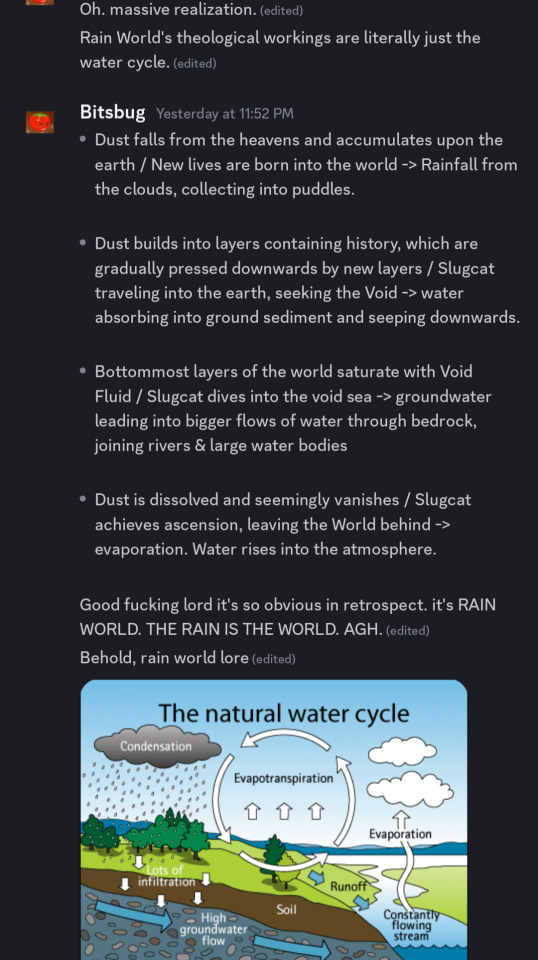
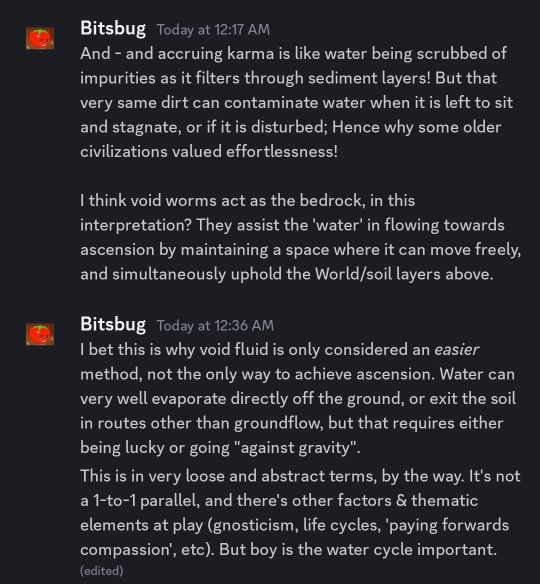
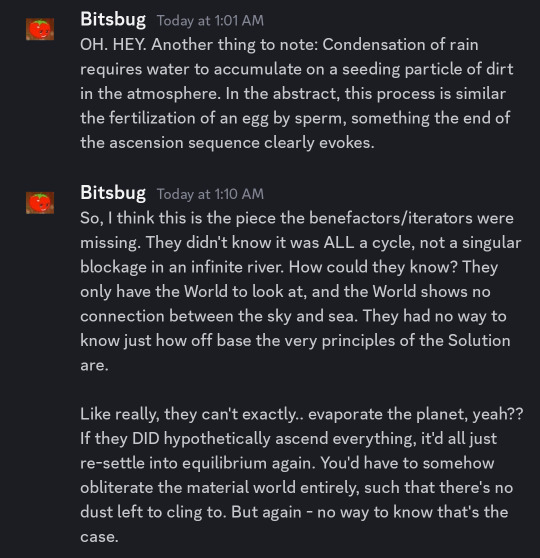
#rain world#rainworld#obligatory talk tag#rw lore#I hesitate to call this 'analysis' because it feels more like 'belatedly realizing a comparison csn be drawn' to me.#also re-upload because I fucked up the cropping
405 notes
·
View notes
Text

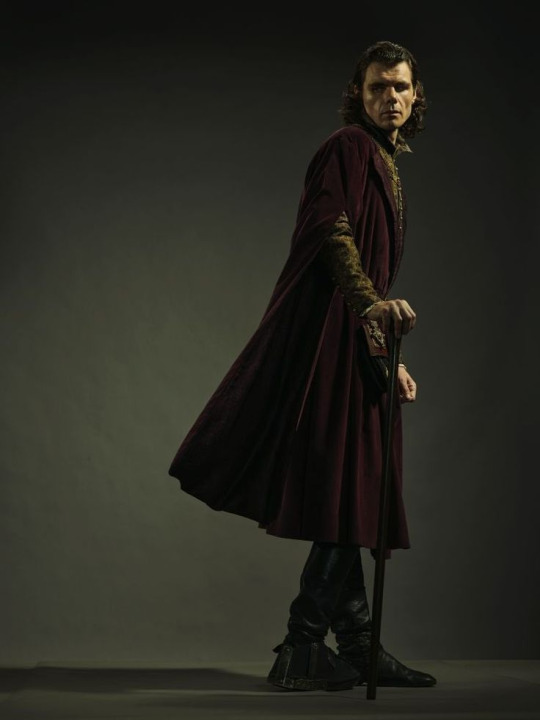


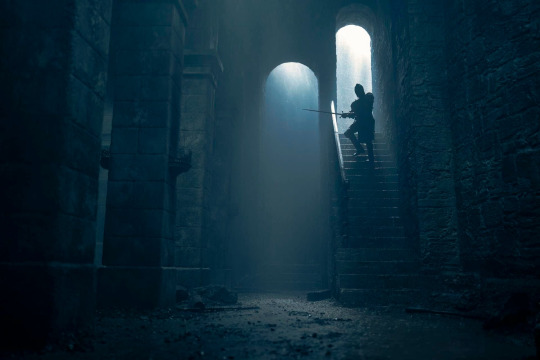



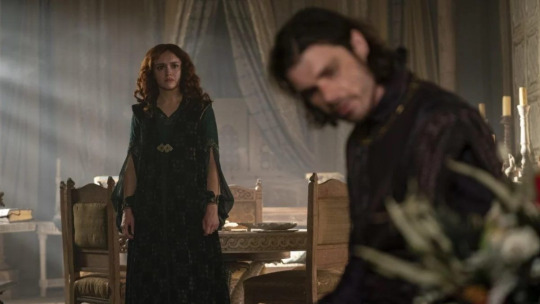
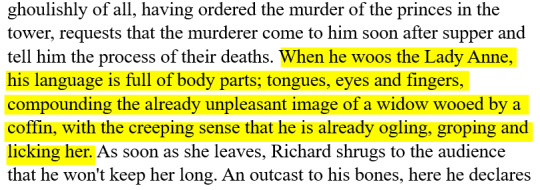

Larys Strong and Shakespeare's Richard III
Richard III (1966) by Laurence Olivier | House of the Dragon (2022-) | Richard III (1592-93) by William Shakespeare Analysis & Commentary by Ear Read This | The Tragedy of Richard III (1592) by William Shakespeare | 'House of the Dragon' Episode 7 Recap: An Eye For An Eye via CNET
#19/5/25 had to edit one of the photos b/c i highlighted the wrong phrases for dicky's witchcraft excerpt#coming back after like 6 months of inactivity to richardpost sorry guys#additionally you've also got the point of fratricide/nepoticide for the purpose of political gain#but the post was already too dense as is#wish there were better photos of Larys' costumes lol because visually him and Olivier's Richard look SO similar#larys strong#hotd#hotd analysis#richard iii#shakespeare#laurence olivier#webweaving#dont get me wrong this comparison mostly works on account of the fact that both characters are obscenely ableist and draw on similar#archetypes to achieve the aesthetics of evil in their onscreen presentation
166 notes
·
View notes
Text
Lots of thoughts in my head about Extraordinary Lougferd and his very human portrayal of evil, as opposed to the soulless overlord so many expected him to be. An out of touch father, disconnected from reality by grief. Causing harm not out of malice, but out of ignorance.
#toad rambles#jrwi wonderlust#jrwi wonderlust spoilers#wonderlust spoilers#im not eloquent enough to do a full analysis post on him and feel comfortable about it. lots of big subjects in there#but im thinkin about him#also noticing a bizly type in dads. the comparisons to mark winters are certainly there#end results may have drastically different reaches and theyve approached it differently but the motives and thoughts behind them are there
154 notes
·
View notes
Text
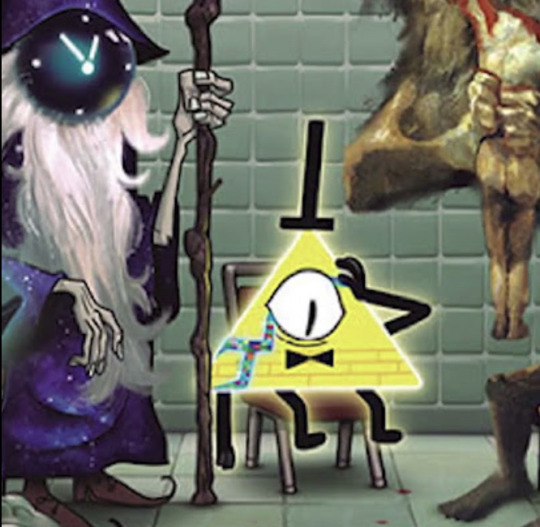

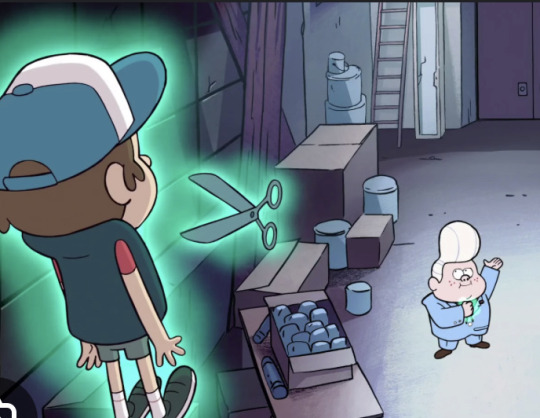

I know the thing right now is comparing Ford to bill, but looking back on it it’s actually insane how much Bill and Gideon have in common. Both had a weird fixation/ hatred for twins and end up in jail/therapy after reaching a point of ultimate power
524 notes
·
View notes
Note
wait i'm curious, what makes you say that gregor doesn't like everyone else (if i read that post right)? just curious since i've never seen anyone else say that
i don't necessarily think gregor dislikes everyone else at lcb but i do think that gregor is an incredibly petty person that isn't nearly as close to the rest of the sinners and even outright dislikes some of them cough cough rodya cough cough which a lot of people just Refuse to see because he's as much of a doormat as he is. there's several examples i could get into to try and prove my point however i'll just focus on what i personally think to be the biggest ones.
additionally, this is going to be kind of long, so i'm adding a read more. read more! read it. sorry for being so wordy. i have several diseases.
Pt1. gregor is the type to try and get along at least decently with everyone, especially if he gets a good first impression from them.
this is less a point in favor of gregor's distance w/ the rest of the sinners and more just a contributing factor to it. once again there's several examples i could point to here but i think the most in your face one happened in canto I with yuri, as several people have pointed out. even before gregor comes clean about growing attached to her as quickly as he did because she reminds him of his sister, we get this interaction.

i'll go ahead and make the disclaimer now that i don't necessarily think gregor is the most reliable of narrators, especially when it comes to his feelings and interactions with most people, but from the way he acts when the topic of yuri comes up (and the way we still see him act even all the way up to c7, nearly a whole year after yuri's death) i don't see reason to question his sentiment here. gregor immediately got that aya and yuri were close, potentially even taking note of their traded belts, and went out of his way to get something nice for yuri despite hardly knowing her.
i feel like a lot of people have forgotten as much, especially since it's been so long since c1, but gregor actually spent a good bit of season 1 doing the exact same thing with the other sinners! gregor reads a connection between him and ishmael pretty quickly despite getting off to a rocky start

mostly because gregor can tell that ishmael is pretty sardonic in a very similar way to him. there's been multiple instances where ishmael and gregor have essentially expressed the same sentiment at different moments, most notably gregor's little argument after ishmael got shot with a decay ampule in c4

and ishmael's response to pilot talking about self-sacrifice in c5

i could go ahead and pull up more examples, but in general pm has gone out of their way to show us that gregor and ishmael are pretty similar, so it makes sense for gregor to assume that they're friends, right?
this will be pushpin 1. keep note of this for Later.
ishmael's only the first sinner we see gregor trying to do this with in s1, we also see him try it out with heathcliff, sinclair, and ryoushuu

he's tried to get along with charon, being one of very few sinners that we've seen actually try to establish a connection with her at all

even rodya, despite my insistence that gregor doesn't like her nearly as much as the fandom thinks he does

all of these seem pretty fine and dandy, right? sure it frequently leans towards self-degradation, micromanaging, and commiseration, but gregor can at least be pretty chummy with most of the sinners, can't he?
Pt2. hell's chicken was more than just comic relief guys please
i'm fully aware that this is quite the hot take, but i think hell's chicken deserves a lot more credit for character writing than the fandom gives it. hell's chicken gave us foreshadowing for several events, such as the donqui bloodfiend reveal

heathcliff's distortion in c6 (as well as hong lu's highly speculated distortion at some point in the future)

and ryoushuu and sinclair's continued connection by making him the odd one out on her team

which, hey! that implies something about gregor's odd one out, don quixote, too, doesn't it? yes. yes it does. that's pushpin 2. keep note of that for later.
speaking of pushpins, hey! that's pushpin 1!

splitting into teams is one of the major events in hell's chicken, and most of the sinner's choices are either motivated by very little, backhanded, or motivated primarily by not wanting to be on the opposite leader's side. i didn't include all of the picks, just because i feel like including most of them already gets this across, but i think gregor took one major thing from this: most of the sinners, when push comes to shove, will only side with gregor when they refuse to or can't take his opponent's side.

now, don't get me wrong, i'm fully aware that this is primarily intended to be comedic relief, but when gregor is being described as having his trust broken by ishmael or nearly crying because no one on his team properly sided with him for him, i feel like it's pretty fair to read into this.
something that i think is pretty important to remember in conjunction with this is that we know that gregor is the type to hold a grudge, both from his general attitude towards the G corp soldiers in c1 as well as his continued distaste for vergilius

even beyond the splitting into teams of hell's chicken, the sinners have given gregor plenty of reasons to feel bitter. i feel like this is something people have noticed but haven't really put a finger on, but it's kind of wild just how often the rest of the sinners make gregor the butt of the joke


and sure, we could argue that a fair few of these aren't really made with any ill intent. quite a bit of it could have been meant as harmless teasing, but with gregor being more sensitive than most, it coming from nearly all sides, and as often as it does? yeah, i think he's prone to taking it a bit personally.
Pt3. yes i do still think gregor was the third most important character in canto VII you guys gotta hear me out okay
of course, all of this leads up to the bit of the story i highlighted, doesn't it? c7? i totally get why people haven't really picked up on all the gregor things i did in it, seeing as they were mostly not *directly* said about him or by him.
personally, i think that gregor's distaste for talking about himself on any serious level and thus leading to him getting sort of "sidelined" narratively (which i take issue with that claim, but still. it's effective for getting what i mean across atm) is supposed to lead players to take a deeper look at the times gregor gets held up to other characters and compare and contrast what's being said about them by the matchup. as i showed earlier with his immediate latching onto ishmael, i think this is something gregor himself is at least partially aware of too.
so, that begs the question, who was gregor compared to in canto VII that makes me think it's one of the most critical pieces in understanding his character?
really, i'd like to avoid getting too lost in the analysis of this canto specifically, since i'd like to do a proper post about this later, but i figure i can bury the lede a little before doing it properly.
c7 features several characters being made to perform in sansón's play, acting out the relevant backstory for this segment of the plot. a lot of these characters have rather direct, degrading reasons for playing the roles they do.
outis, a character with an inflated ego who wants her journey to have a purpose, is made to play an aimlessly wandering villager with a single line.
hong lu and ryoushuu, two characters for whom families and the expectations placed upon them are likely going to play a major role, are made to play bloodfiends.
rodya, a character who resents her lot in life and is constantly shown to be eager to leave her destitution behind her and become someone special, is made to play a helpless villager that's too poor to even offer any money to the hero that saves her.
heathcliff, a character that has spent most of his life getting dehumanized by comparing him to beastly animals, is made to play a literal bear whose sole purpose in the plot is to get beat up and then quickly left by the wayside.
sinclair, a character that has two opposed parties essentially treating him as a macguffin to procure for their side, is made to play the character who was arguably the catalyst for this entire canto, not to mention playing a decently major role in ruina.
our star don quixote is made to play her father, the first kindred, but there's someone by their side the entire time, isn't there? don quixote's dear, steadfastly loyal companion. a character which don quixote has tasked themself with getting to come out of their shell?

hello again, pushpin 2.
gregor has been made to play our unreachable star, sancho. someone had to, of course. you can't really tell a story without it's main character, now can you?
now, i should once again give a disclaimer. i am not trying to say that i think adapting what happens to donqui/sancho in c7 to gregor is the road pm is going to take here, not only would that toe a bit past the line of foreshadowing, but it'd also just amount to rehashing that plotline again, which i don't think would make for a particularly exciting story.
what i DO think is that we can take a lot of the things that are said to either directly be the case for sancho and use them to inform how we see gregor.
and god, does playing sancho have some fucking implications for our favorite ossan archetype.
starting off, the earliest moment we get to see of sancho is quite literally her just waiting for death to take her in a pile of ashes.


which, i should remind everyone, is actually pretty damn close to what happens to gregor's literary counterpart at the end of the metamorphosis. gregor samsa experiences one final breaking point that pushes him over the edge and makes him decide to just wait for starvation to take him.
gregor and sancho both consider themselves to no longer be human, something which sancho goes out of her way to highlight repeatedly throughout the canto and gregor is quick to get defensive on her behalf for when outis starts really tearing into her

sancho spends quite a lot of this story denying herself the joys of community and friendship, despite knowing that, even with the rest of the sinners frequently making jokes at her expense and outright insulting her, they were things that she desperately craved.




and, while this is getting into my "outis is a red herring meant to distract us from gregor's eventual betrayal" theorizing, i also think it's worth noting for this discussion that sancho's fellow kindreds, her family, all seem to be under the impression that she dislikes them and ultimately her departure was an act of betrayal

and that, despite gregor being one of LCB's resident mood makers and attempted conflict de-escalators, one of the sinners that's most prone to making appeals to the bonds they've all forged together, only him and faust remained silent during everyone's speech

so yeah, i think there's quite a lot of little details and hints building up to the reveal that gregor's not quite as fond of everyone as he presents himself to be. i do think a lot of this ultimately comes down to gregor getting in the way of his own happiness, similarly to donqui, particularly because he's been frequently portrayed as something of a self fulfilling prophecy, especially by giving him as many christ allegories as they have by way of priest and garden of thorns. gregor is convinced that the rest of the sinners don't like him because he's not convinced anyone could like him, so he convinces himself that he hates them because why should he care if someone that he hates hates him too?
a lot of this ultimately ties back to my personal interpretation of what happens in the metamorphosis as well as my own theories regarding all the times gregor has made weird callbacks and references to lobcorp and ruina, but yeah. i think about this guy and his deeper characterization a fairly normal amount, i think.
to end this off i'll highlight one of my favorite little "gregor is fucking seething and trying so hard to keep it cool" moments, in the credits CG for c7 we see rodya teasing him by drawing a little horse on his window and actively pointing and laughing at it, which gregor really doesn't seem all too pleased about.

i personally think this ties into the other cruel part of sansón forcing gregor to play rocinante, which is the more literal "he's actually just straight up playing rocinante" side of things. gregor was quite literally made to play something less than human, less than even animal really, as he was reduced to nothing more than the shoes don quixote wore as she got to play the leading role. sansón directly makes jokes about gregor being nothing more than shoes in the play twice, which adds to this reading, i think.
this, imo, really plays into the adaptation of the metamorphosis! i've seen a lot of readings for the book that posit that, despite being the protagonist, gregor samsa can't really be considered the main character due to nearly everything he experiences in it being used to further his family's character development at his expense, which i think fits nicely with limbus gregor seemingly having the most said about him through indirect means by holding him up to other characters. also it's rodya carelessly making fun of His Big Major Insecurities™ again like she did in c1 which i always find fun. rodya i love you but god you're the worst.
#beargregor's property#limbus company#project moon#lcb gregor#something to bear in mind#beargregor's analysis#beargregor's theories#do i bother tagging both of those i feel like i do#oh also.#long post#sorry guys i promised i would try and stay brief when i set out to respond to this ask and before i knew it seven hours passed#my bad#does this give me normal gregor fan cred#i'm fully preparing myself to be screenshotted and posted to twitter or reddit with people making fun of my reading of him but idrc honestl#also i'm really hoping that LCB regular check up has donqui actually like#confront gregor about the fact that he was playing her in sansón's plays#i've seen people insinuate that any deeper reading to the roles they got in them is doing too much#and while i really don't agree with that just due to how much sansón fit the roles to be as cruel as possible to their sinners#i do think at the very bare minimum that the comparisons drawn between gregor and sancho are Very Intentional#despite gregor's supposed lack of proper Deep character moments people love to claim i really do think that we know a lot about him#significantly more than people think we do#just because so much of it has been told to us indirectly or has this aspect of plausible deniability to it#just due to gregor being the way he is#a lot of these smaller subtler details in his proper main writing get highlighted more in his IDs and EGO#like gregor's pettiness and grudge holding in AEDD or the aforementioned self-fulfilling prophecy-ness of priest and garden of thorns#anyway. that's it. gregor is fat by the way did i mention that. also very hairy. refer to my url for more details.#ignore how i just can't shut up about him i promise i'm normal. i promise it's over i can rant about him more another day. i swear.
324 notes
·
View notes
Text

Gaslighter? I hardly know her!
[First] Prev <–-> Next
#poorly drawn mdzs#mdzs#wei wuxian#lan wangji#jin guangyao#qin su#The parallels to the mulderskully comic were genuine scripting coincidences that I kept in for the irony.#wwx and mulder both have a strong need to show their beloved (investigation) partner the cool thing they just found.#Much to their chagrin and concern.#For as much of a mess the plot gets in The Untamed...one of the things it does probably the best of all adaptions is setting up JGY.#specifically how we spend time getting to know him as a *Regular Guy* around our deuteragonists' age.#I love how he's present in the cloud recess arc! I was rooting for him as a character! The twist villain reveal felt so heartbreaking!#Here in the audio drama (for as much as it does well) we pretty much get 2 scenes tops with this guy before he's villain monologuing.#before this we know him as 1) the guy NMJ yelled at a lot 2) a suspect 3) leader guy Jin Ling was partially raised by.#The elements are there but but not with any particular depth to make him...interesting (in this version).#Sure we get to learn more after the fact but it just falls so flat in comparison B*/#ohhhh noooo the guy we are pretty sure killed a guy is gaslighting his wife and has a secret torture chamber. And he's a politician.#not much of a mystery to it all innit.#Feel free to disagree or bring up differing points btw; I love media analysis convos and this truly is just my opinion.
2K notes
·
View notes
Text
[WBK Character Analysis] Suo Hayato and the Crisis of Contact [Part 1]
EDITs
5/29: Added commentaries to Suo v. Oobiki and minor edits.
This is yet another contribution to the well-made observations that: Suo does not eat with others in a story that emphasizes eating together; his fighting style is predominantly evasive amidst a narrative of fighting as a conversation; and all the deflections he deploys in response to any attempts to know him deeper. All in all, an avoidance of contact and any violation of boundaries — the literal boundary of bodily contact and symbolic boundary of knowing.
Overall, most of the observations here are… not that new. However, there are a few things I have personally seen less discussed in details: humor as deflection (both in the story and its effect on the fandom), Suo’s arrogance and disinterests in his opponents, and his subtle detachment from his peers… even if he loves and cares for them.
The language of this analysis is heavily based on Anne Carson’s essay Dirt and Desire: An Essay on the Phenomenology of Female Pollution in Antiquity. Unfortunately, I am too much of an insane Anne Carson stan to discuss this in any normal way (deeply sorry for that). Regardless, I will try to be as clear as possible, despite my general insistence in uh. using the words that I do (bear with me). Because I am absolutely insane, have a table of content:
Contact as a crisis; dirt; leakage (Part 1)
Suo's general (habitual) deflections (Part 1)
Suo's emotional intelligence and approach to emotionality (Part 1.5)
Teenage arrogance and disinterest in Others
Suo's relationships to other people; or, the disparateness between Love and Relationship
Suo versus Sakura
Note that much of these are interpretations/extrapolations outside of things that are explicit in canon.
I will try to keep each post about 2-3k or less; this total analysis will be split over multiple part. Part 1 (this one) will focus on point 1) and justifies its connection to Suo (and WBK) and point 2), which are primarily textual evidences.
Crisis of Contact: so what the hell am I talking about?
This portion will be on Anne Carson's Dirt and Desire essay, as to provide the context in which I framed this character analysis. I will try to be as brief as I can while being understandable. The original essay itself, as the title revealed, is mostly about the construction of female gender (roles) in Greek antiquity, but its discussion of Touch, Dirt, and Leakage proved to be very useful frameworks!
First, on Touch:
As members of human society, perhaps the most difficult task we face daily is that of touching one another---whether the touch is physical, moral, emotional, or imaginary. Contact is crisis. As the anthropologists say, "Every touch is a modified blow."
This is what I mean by the "crisis of contact." Every contact itself is a mini-crisis: when we exchange blows, our skin touch, thus violating a closed and fixed physical boundary; when we converse, our words and minds touch, thus breaking open our worldviews and preconception; when we connect with other, they (and we) shattered the walls we constructed in our mind and permanently nestled themselves into our minds and hearts. These are all the things that Sakura, our beloved MC, is challenged by the narratives to learn how to do-- and succeed. His blushing embarrassment, in this framework, is a response to these "crises" of violations.

[Sakura blushes nearly every time he learns how to communicate and recognize his feelings... lol]

[the mortifying ordeal of being known]
on Dirt:
"Dirt" may be defined as "matter out of place." The poached egg on your plate at breakfast is not dirt; the poached egg on the floor of the Reading Room of the British Museum is... Mary Douglas calls pollution "a particular class of dangers which are not powers vested in humans but which can be released by human actions."
A little more background: the Greek antiquity conceptualize men as "hot, dry, vessel" and women as "cold, wet, liquid (to be contained in a vessel". So, dirt as "matter out of place" equates to "liquid not being properly contained". As Mary Douglas puts it, being "dirt" is not anything inherent to human or even women in particular; we all just have the ability to displace matters and make them "dirt" -- including ourselves. Sakura was treated, as we can put it, "less than dirt" for being "out of place." Same with Kaji's unrestrainable anger -- until Hiiragi figured out a way to help him "contain" it. Umemiya, as a child, felt that his own grief was displaced, his own life and his family's lives misplaced between who die and who gets to live -- his entire existence as "dirty". We can formulate any ostracism and troubles in Wind Breaker into displacement and dirt -- it's a fun exercise! But it will be more helpful if we put this construction of "dirt" into use.
How does any of this relates to Suo? We already noticed that he avoids, and, if he cannot, minimizes all contacts-- avoiding all the crises that everyone else, especially Sakura, go through. Most of these have lead to immense character growth. Maybe it's just not Suo's time to go into it yet. But for a deuteragonist, on a similar level of screen-time and importance as Nirei, Suo's arc thus far remains glaringly stagnant. One thing that he perhaps "grew" in is holding in his ruthlessness better after Sakura refocused Suo's vengeance in a more productive way (fight off other opponents and not beat one guy to death) during the KEEL fight. But we haven't seen a situation that actually "proves" that growth in a fight yet. So far, no contact, no crises yet, to grow, while Umemiya has explicitly said: "You need a little bit of conflicts to grow." Thus far Suo's "vessel" remains completely intact and its contents unseen (unlike Sakura's and Nirei's anxieties and trauma).
Where does dirt comes in? On a more literal sense, we have seen that Suo... never get dirtied after a fight. There is one (1) chapter where his face is scuffed (ch145)...

... significantly less than others, and it magically disappear in the next chapter. I think it's innocuous enough to be a mistake in Nii-sensei's part (either to remove or to add it), but, there is another interpretation: Let's remind ourselves that stories are about narratives, and that character, their design, their physical and mental states, are tools of the narratives*. Suo's (minimally) scuffed state is more symbolic of the Bofurin kids engaging in Sakura's struggle to pull him out of it -- a collective contact, willingly be "dirtied" to touch and pull Sakura out of drowning -- rather than Suo finally getting injured in a fight, after all. In addition to this, it will be visually jarring if Suo remains untouched here (note that this is not to dismiss what I said right before that).
*(Nii-sensei has such a command of details and themes in WBK that I must allow everything to be Symbolic-- there will be more on this in other topic)
Although this is a counterexample, it is to emphasize that, well, we noticed that Suo has never been dirtied or "touched" in any way in a fight. In a work where people routinely gets injured, bleed, violently got their face smashed in (I'm still in pain thinking about the Kaji v. Banjo fight), Suo never has his boundaries breached the way others has. No contact, no dirt. A closed room. He never let anything "out of place" be on him and is never actively being "out of place" himself -- even in the Red Light district, he does not seems frazzled (out of place) the way Nirei or Sakura were. No crack in the vessel, no leakage; nothing is leaving him either. No substantial personal fact is known-- for a deuteragonist, that's quite unusual.
The only "secret" we know? Natto. It is honestly lighthearted enough to be a joke (that is not to dismiss its importance or factuality!). It becomes a gag in the fandom! Purely because of how little else we know about Suo!


AND SUO DOESN'T EVEN NEED TO SUCCESSFULLY DEFLECT IT HIMSELF. THE NARRATIVE DID IT FOR HIM!!!!!
LIKE. LMFAO. OMFG. WE HAVE ALL BEEN PLAYED!!!!!!!!
THE NARRATIVE WANTS SUO TO BE AS INSCRUTABLE AS POSSIBLE.
GO HOME. THERE IS NOTHING FOR US.
JK! WE ARE STILL DIGGING OURSELVES INTO IT FOR ANY GRAIN OF INFORMATION THAT WE CAN!
We have some textual evidences already. Let's go for more.
More on Suo's habitual deflections
Let's begin by making a list of his deflections:
Fighting style: predominantly defensive; "pushing away" instead of "smashing in"
Personal information: humor to deflect from (what could be) his insecurities; reveal-not-reveal origin of his fighting styles, or details about his master; the "diet"
Emotionality: "I'm not usually this emotional"; disquiets hiding underneath maturity
Clothing: no skin?.megamind
Narrative/Production deflections: why is Suo the only person whose room is not revealed? lmfao?
Ok. I think that's everything.
Fighting styles:
Suo is a predominantly defensive fighter. In a fight with non-fighters involved, he naturally steps into a protective role by default. The only time this changed was when Nirei volunteered to take that role and encouraged Sakura and Suo to go on the offense. Defense or offense, Suo deflects moves and takes down opponents by their offensive momentum — if they pass out hitting their head on concrete, great! He does not contribute his own force into the fight; no horse in the race, no input to the conversations.

Compare to, say, Sakura and most others, who charges ahead, moving into their opponents' space to attack; Tsugeura, whose virtue involves allowing opponent one (1) hit and then... German suplex them; or Kiryu, whose fighting style is most similar to Suo — except he often disables his opponents with what looks like accupressure. Perhaps the most relevant difference is that Kiryu does charge ahead to fight, and some of his moves involve pulling the opponents in. Suo does none of that— he waits until they violate his space and pushes them out.


Pulling in...

Pushing out. Note that Suo does not reach for his opponents— he waits until they are in his space.
The only time we have seen Suo "attack", per se, is 1) KEEL and 2) against Oobiki, where he needed to wrap things up quickly and this isn't an opponent who would go down with deflection. That's the literal, in-text explanation at least. Symbolically? I'm not sure! Maybe Suo did in fact get close enough to Nirei and his classmates to expresses something about himself— not deflect, but rather, physically engages in the fight. That will take me more time to think about.
EDIT: Hey, this is also the fight where Suo finally reveals something about himself— specifically, his philosophy and focus on teaching, “discipline” as passing down knowledge (and, side notes, not as “punishment” — this is something I’m exploring in a fic actually xP). We even got the first visual of his Master! So, yep, he contributed something in this conversation here. This is the very first step in advancing towards Suo’s backstory; Nii-sensei is telling us to be patient! We got a similar visual (the back of the head) of Akari ~200 chapters before Kiryu’s arc, after all.

And this is also the same fight where Suo's untouchability and INSCRUTABILITY ("I can't read you at all") is explicitly addressed— by a fighter that is approximately Noroshi's caliber; or at least, much stronger than KEEL or Kanuma.

In KEEL, his aggression was taken as unusual/"the wrong decision". Against Kanuma, he didn't even mean to hit for real— only to scare/shock the opponents. Suo is an incredible fighter, acknowledged by Nirei's intels, Hiiragi and Umemiya themselves, and Sakura wanting to fight him. And, from his untouchability, literally (as in, not symbolically) we have yet to actually see Suo's full, current capability at all! And that is A LOT to hold out on when every character, one after another, get pushed to their limit. Suo's avoidance of initiating fights is narratively convenient to this end and also... says something about his refusal to initiate a "conversation".
2. Personal information and humor
We have seen this before with natto! His easy-going demeanor, ability to diffusive and deflect ("This conversation is about Sakura!") enables him to stagnate the conversation until the narrative ended it for him. As for reveal-not-reveal: I want to note that we do know things about Suo; quite a few things, in fact. Suo does not never say anything about himself, but give enough information to satisfy/shut down the conversation without providing anything revealing about himself. "Oh, I can't personally tell you what my fighting style is-- my Master is self-taught." (You have a Master? What are they like? How long have you been practicing? What?) "Oh, I'm on a diet." (What kind of diet? What can you actually eat and not eat? Why aren't you eating anything at all?)
Suo has been demonstrated to be an incredibly socially-capable person; his self-selected main role as vice-captain is negotiation and people-dealing. He has shown an incredible level of emotional intelligence, sensibility, and sensitivity to other's thoughts and feelings: being able to tell that Sakura is not used to other helping him, therefore knowing that it will be difficult for them all if Nirei and him continue to push; repeatedly being able to use Umemiya "against" Sugishita to get the latter to do things. Suo knows how to start and end a conversation, what to say, how to steer the interaction one way or another, how to stall— his social skills and suaveness are vitals in all these social deflections.
Notably, humor plays into this a lot (yet another example of social-capability). His eyepatch is the biggest mystery by far— and he was able to shut down any speculations or focus on it by bringing it up before anyone else can, therefore being in control of the topic.

Note that he brought it up out-of-nowhere, already anticipating the curiosity: "By the way..." and quickly changes the topic to Sakura

The constant, mysterious "diet" is also introduced under humorous connotations (Suo agreeing with Nirei's about the unusualness of the context of the meal, then immediately subverts expectation by reveal that should he be able to eat, he would-- he is just on a diet).

He blatantly lies — for innocuous things such that they are humorous — and gets out of explaining anything; like why he does not want to go into water

(My theory on this is quite innocuous: depends on how recent Suo's eye injury is, healing can be quite slow and touching sea water is... bad for that. It'd just ruin the mood if we bring it up.)
With the eyepatch and the water, is there a chance that Nirei is too polite to push it? Absolutely. And that is another "manipulation" of social situation Suo is capable of: he gives non-answer that is tonally appropriates such that it is impolite/insensitive should anyone tries to push. Boom, nobody knows anything. Closed room, no leakage.
3. Emotional disquiets
Suo's "veneer" of calmness and maturity is so constant and iconic that the smallest ripple sends the narratives (and us) to ruin! And this contrast is emphasized by the narratives— I'm only showing here the more subtle signs in each "incident", and we already feel the disruption!


(Note the look of disdain in this one— we will come back to this later)
Suo is not as "mature" or unperturbed as he paints himself to be; he is, after all, a human, and a 15 year old child at that. In a story that emphasizes realistic emotional responses, it is extremely unrealistic to paint a 15yo boy as having it all together (orewing wrote an excellent post on this subject). Maturity, in this case, is a mask and therefore another deflection— hiding away his emotions and disdain until it came bursting out of him, ignoring his emotions to prevent others from seeing and "interacting" with it — vision becomes another mode of boundary violations (yes, this is in the Anne Carson essay). Now, the interesting question here is: Why is this the case? Unfortunately, that is outside the scope of this research <3
4. Conservative clothing: no_skin?.megamind
It's not about being revealing, it's about his wardrobe being so distinctly old-school and especially jarringly conservative in the beach trip that brought to attention how uh. tall the wall is. Funnily enough, recently there was a fake-merch post going around on Twitter that people immediately spotted as fake because Suo reveals his upper torso in that one (lol) and the official one, coming out the next day, has him covered from head to toe. Symbolically speaking, this is yet another visual hint that Suo is extremely mysterious and elusive. Fashion and personal styles are extremely important to WBK's characterization and narratives. Everything design-wise is very intentional— including Suo's secrecy.
It's highkey just funny as a gag at this point. There were theories about secret back tattoos (I think primarily motivated by Nii-sensei once posting a character design hiding elaborate back tattoos under normal school uniform that does looks suspiciously like Suo's initial design, now that I think about it.) I don't know if I believe that; scars theories are more likely, but I don't think tonally WBK is trying to tell a more violent stories than what normal people within 1-1.5 standard deviation of the Bell curve will experience. In other words, I don't think the narrative looks to tell what is implied if Suo's back is elaborately tattooed or viciously scarred. I am not saying that HCs about these are invalid, just that— who knows what is in store! It is possible that Suo, with all of his evasiveness and general strangeness from the narrative, is in fact the one representing the "exorbitant" violence in the world.
5. Narrative deflections: Nii-sensei is holding out on us.
Here is the final straw: It is no coincidence or innocuous chances that all of these deflections and overall sense of detachment is overthinking. Nii-sensei seems to be extremely involved, by usual manga standard, into (at least evidently) merch and game adaptation of Wind Breaker. Wanijima, I'm pretty sure, was introduced as a WBK game character prior to his "adoption" into the manga. All the merch strictly sticks to Suo's visual conservativeness. And, very intentionally, Suo is the only main class 1-1 member whose bedroom is not shown in the artbook. What is Nii-sensei hiding? A lot, it looks like.
What does that means besides confirming that we aren't all extremely delusional? Nii-sensei seems to be deflecting us, too. Well, it's actually way too late at night and I have spent too long writing this to overthink this point. I can only be certain that there will be a lot in store for Suo's character developments, arc, and that I trust Nii-sensei's pen. Amen.
That's it for now! Part 2 will hopefully cover the last three points (maybe only one or two each) depends on how much I have to say. Evidently, I have waaaaay more to say than I thought. Thanks for holding out if you reach this point, and let me say that we did most of the heavy lifting/justifications here :thumbs-up: The discussion of dirt, leakage, and crisis was hopefully constructive/interesting!
I would love any feedbacks/thoughts AND FEELINGS on this, including if my writing is absolutely unreadable (and yeah feel free to use anon questions should you desire to). Would be beyond happy to clarify anything I wrote, and discuss more!
See yall in Part 2, which may come out earlier than I or you want or expected.
#wind breaker#wind breaker analysis#wind breaker meta#wbk#wbk spoilers#wbk meta#wbk analysis#suo hayato#in case you couldnt tell. hes my specialest little meowmeow. everyone else i love you too#but not like how i want put this little guy under a microscope#sakura haruka#yes the suo-sakura foil/comparison are VITAL to this analysis#nirei akihiko#kiryu mitsuki#special mentioned#i dont want to tag anne carson. this is not what an average anne carson enjoyers expect. but excuse me.#anne carson#rccl#i thunk#it should be known that i spent approximately 4-5 hrs writing this nonstop. including time searching through the manga for textual evidence#it is 4am and i have class at 9 <3 yippee!!!!
113 notes
·
View notes
Text

Out of four consecutive Disney Villains that were defined by plot twists regarding them, I've often thought: what made Turbo and the Cybug he merged with in Wreck-It Ralph work out so well and deliver a villain so infinitely stronger than the villains that followed? I'd concluded that mostly it was because Turbo got to be around as an active and characterized antagonist as King Candy and the twisty nature of his villainy was more comparable to Judge Doom than following the Stinky Pete, Henry J. Waternoose, and Lyle T. Rourke route of only being revealed as a villain in the third act and getting to be actively antagonistic for a limited time while taking on drastically different characterization than before like the later Twist Villains (or in Bellwether's case, in only the final minutes of the third act!).
But there was something else too, and it recently struck me.
Hans, Callaghan, and Bellwether all adhere to basically the exact same formula, with only the specifics of their roles differing due to each movie being a different type of story - Frozen is a fantasy adventure-thriller, Big Hero 6 is a superhero story, and Zootopia is a buddy cop mystery. The formula is that not only is the villain introduced as a friendly character in the first act and ultimately shows their true villainous self in the third act, but during the story there's another villainous character thrown at the viewer to serve as the red herring. In Frozen, it's the Duke of Weselton. In Big Hero 6, it's Allister Krei. And in Zootopia, it's Mayor Lionheart. All of these characters seem more like the sort of villains you'd typically expect to pop up in stories of these films' natures, radiating such obvious evil energy that the viewer is naturallly meant to have their suspicions drawn to them rather than the unassuming nice person who turns out to be the real villain of the piece. I'd argue it worked best when first tried in Frozen because the Duke ended up having absolutely nothing to do with the main conflict or how it got resolved, his main contribution being to tell two men to be prepared to kill Elsa at one point and that's it: he was a red herring in the purest sense. With Krei and Lionheart afterwards, they both had increased prominence in the narrative, the former being responsible for what drove Callaghan into grief-stricken, vengeful supervillainy, and the latter at first being Bellwether's boss and actually serving as a secondary antagonist in the plot with his unethical captures and coverups in response to Bellwether's Night Howler conspiracy. And they both are such obvious suspects for being behind evildoing even in-story that it loops around to becoming obviously NOT the true culprits at all. (Not helping is how both the Duke of Weselton and Allister Krei are voiced by Alan Tudyk, at the time still most known for King Candy/Turbo!)
Whereas with Turbo, I think it was so effective because it was sort of flipped around. The story was leading us to look at King Candy as the red herring or ultimately just the diversion, continuing to remind us that the Cybug that Ralph accidentally brought with him into Sugar Rush was lurking below and breeding, which we knew could become a true threat to the game and to the whole arcade world given the way Calhoun talked the Cybugs up. Even when Felix goes into the backstory of "Going Turbo", we're not really linking that to what's currently going on with King Candy, who we at that point had not been given reason to think is anyone but who he appears to be, and King Candy's such a silly, whimsical doofus of an antagonist that we suspect he'll amount to nothing more than food for the Cybugs. How King Candy goes on to manipulate Ralph and the revelation about him as a usurper turns our perspective of him on its head as is, but then it's revealed he's not just any usurpeeeer - he's Turbo! This on its own makes him that much more villainous, but then still we get the kicker: Turbo gets eaten by the lead Cybug, just as we might've predicted would befall him....and his code overwrites the Cybug from within, making him even more dangerous and malicious than ever! So while the Cybugs do indeed become the endgame threat, they're also used as the actual diversion to get you not looking harder at King Candy and figuring out both his true identity and his true nature as the primary, most menacing villain in this story. It is ingenious.
Pulling off a Twist Villain is easy. It takes a lot more thought, skill, style and polish to pull off a Turbo-Tastic villain as Wreck-It Ralph did.
#Disney#disney villains#Wreck-It Ralph#Turbo#King Candy#Frozen#Prince Hans#Big Hero 6#Yokai#Robert Callaghan#Zootopia#Dawn Bellwether#Mayor Bellwether#plot twist#opinion#criticism#comparison#analysis
281 notes
·
View notes
Text
On this episode of little details I notice:
There is so much movie magic that goes into the LOTR movies in the way of suspending your belief. Not once are you aware that there are full, human sized actors playing the Hobbits because the perspective and playing with scale is done so well.
Though there is this one shot I can't help but marvel at every time, and if you haven't bothered to pay attention to it before, it's just a testament for how well it's pulled off.
It's THIS SCENE:

Look at their hands.
That is obviously not Billy Boyd's hand, especially because of how small it looks compared to Ian McKellan's, but your brain can register that, it might not be Billy's hand, but it certainly is Pippin's hand.
It's just so impressive, during a scene so close up, where they obviously couldn't have used a scale double for the face, they went the extra length to make Pippin look smaller, having a scale double off screen, having their hand held by Gandalf. So subtle, you might not even notice it at first, but it WORKS.
#lotr#lord of the rings#tolkien stuff#tolkien tag#Peter jackson#jrrt#pippin took#lotr pippin#tolkien#middle earth#return of the king#movie magic#billy boyd#I am also utterly aware that the more you look at the scene#the more obvious it is that that hand is way too small in comparison to billy's face#and it starts to look weird#but the point is#that it's impressive that your brain might not even acknowledge it at first#and just go 'yeah that's pippin's hand'#long post#rambling thoughts#rambling in the tags#I love media analysis
81 notes
·
View notes
Note
What do you think about Sunday and Aventurine? and their interaction in 2.1, I know Sunday did what he had to do but I just have a strong dislike for him ever since. He is an interesting character though.
I mentioned on a previous ask that I wanted to talk about narrative foils/character parallels, and that ask mentioned Aventurine being similar to Robin and a little to Sunday. But I thought I'd combine that character foils idea with this post about Sunday because...
Aventurine and Sunday are Near Perfect Character Parallels

(Also sorry to Youtuber Fayato who I screencapped this image from; I literally couldn't find a single other good image of Aventurine and Sunday in the same frame!)
In media, the concept of the narrative foil refers to a character who contrasts another character; by setting the two characters and their plots side by side, the audience is better able to understand the traits of the central character.
And by setting two surprisingly similar characters in opposition to each other, it becomes very clear how even those facing similar circumstances can take diametrically opposed paths in life.
First, let's start with the basics:
Aventurine and Sunday are both characters whose real fathers were never in the picture, and who lost their mothers right in front of their eyes to traumatizing events.

They both experienced the violent deaths ("death" in Sunday's case) of their sisters.
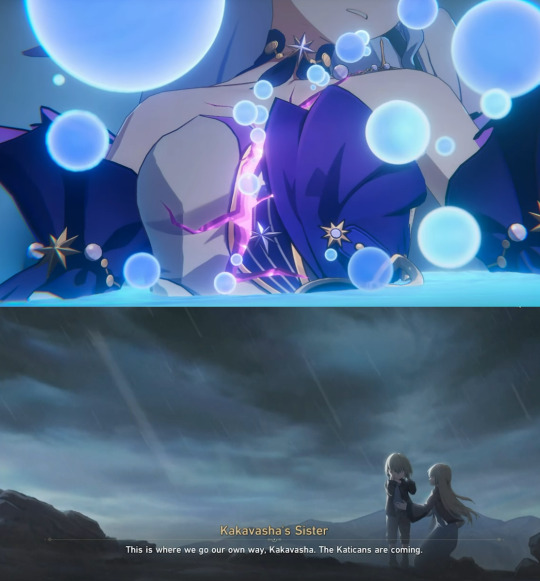
They both were "rescued" by people who intended to use them by growing them ("grooming them" in Sunday's case) into a figure of authority.

They were both told they were "chosen ones" growing up. And yet ultimately this status as the chosen one is in doubt: Aventurine isn't sure if his family's faith is real, while Gopher Wood tells Sunday that Penacony's chosen should have been Robin all along.
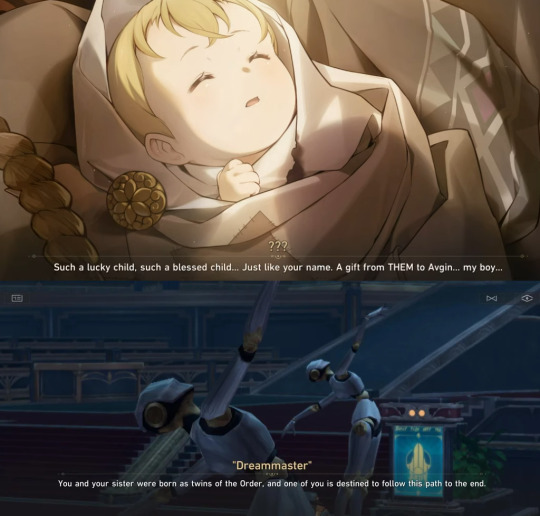
They both became self-sacrificial, Aventurine through his obvious willingness to throw his life away, and Sunday through his plan to remain outside the sweet dream to be its keeper while everyone else got to live in "paradise."

They both are trapped by their situations, Sunday by his inability to leave the cage, Aventurine by his inability to accept the life he isn't able to throw away.

They both became the "villain" of their respective patches and both faced "death."

Personality-wise, they both strongly favor being in control, to the point that their scene together is an aggressive power struggle over each other.

This is how the "future" Aventurine describes himself:

Does it sound familiar? It should, since that's exactly how people describe Sunday.
But they also both prioritize their families, and they are equally altruistic at the core while seemingly self-centered on the exterior.
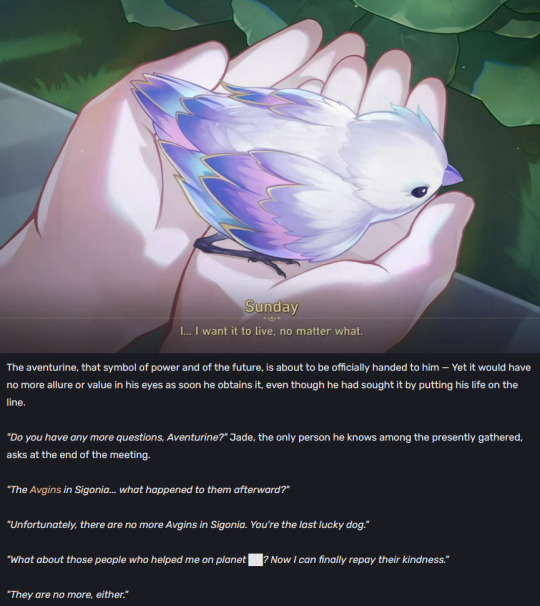
They both, of course, have the blessing of an aeon.

And here's where I'm going to take a massive tangent, but it's important: I do tend to be among those who think there is at least some connection between Ena, the Order, and Gaiathra.
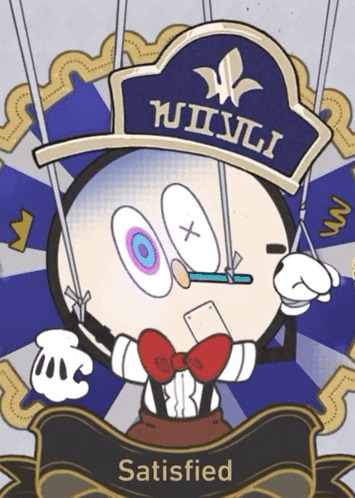
I've heard all sorts of reasons that they can't be two different concepts for the same being, from the whole "Gaiathra is a goddess of trickery and that's not related to order" to the whole "the Order's followers worship with song while Gaiathra's followers specifically don't," but I think something that has been missing from the discussion of Ena and Gaiathra's possible connection is that "Order" as a concept has entirely different definitions depending on which cultural context you approach it from.
The most mainstream modern concept of "Order" is something that is imposed: A power from on high descends to quell the chaos of the mortal world, to "bring order" through guidance to humanity. This is very Abrahamic, very modern Christian, and that is reflected in the imagery surrounding Sunday. Sunday, as a manifestation of the Order's power, believes he will be able to uplift Penacony from the mire, free people from their unfulfilled desires and confusion, and bring about perpetual peace by enforcing his understanding of harmony on the populace trapped in the dream.

Sunday's Order is not the natural state of the world but something that must be carefully cultivated and maintained, a constant battle against the chaotic forces of life and its temptations. This type of "Order" promises an idyllic future, but at the cost of the present freedom of everyone who submits to the law, who must surrender their original fate for a structured sweet dream.
We understand this concept of "Order" because at its core, it's the one that modern societies largely embrace--ruling authorities establish laws that must be followed at all costs, even when they risk the freedoms of individuals, because they ultimately (supposedly) support a greater good. A majority of society adheres to the laws handed down from on-high, and life functions relatively stably.
Yet this conception of "Order" is predicated on the idea that the course of people's lives is decided first and foremost by the people themselves--which is why they can make mistakes, go astray, and need to be shepherded in the first place.
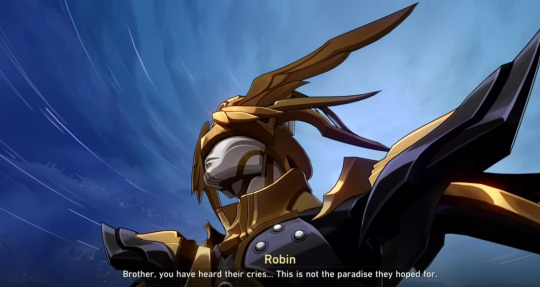
Without imposing structure through authoritarian power, this type of "Order" will crumble away in an instant, because this view assumes that rightness can only created by humanity, and that chaos--not order--is the natural state of existence.
Ena, who holds worlds tidily contained in her hands, who is tangled in puppet strings, who wears a hood like a nun or the Virgin Mary, and who is haloed like a Christian angel, clearly represents this definition of "Order" to a T.
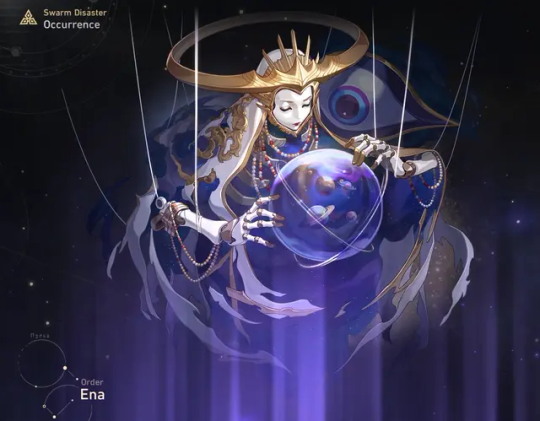
But... this is not how humanity has always defined "Order."
It was not always taken for granted that people had the power of self-determination, and in fact, for many centuries and across many cultures, the concept of "the order of the world" was tied directly to the concept of destiny. Whether a volcano would explode and destroy your entire civilization, whether floods would swallow your city, whether the crops would grow or fail all depended on the pre-made decisions of supernatural powers, who were in turn often personified concepts of the natural world itself. What happened to any given individual, what twists and turns their life would take, whether they would achieve their dreams or not--all these aspects were also predetermined, decided not by the actions of the individual but by fate itself.
Thus, the world and everything in it has a natural order. Things may seem chaotic, they may even seem unbelievably horrible, but all events in existence unfold as they should. We may not understand why, but everything occurs in due course, woven into an endlessly repeating pattern on the fates' loom--spring becomes summer, life becomes death, disasters happen and are healed from, children are born and grow old. If it is your fate to die, you will. If it is your fate to fight and live, you will. To reject this natural order would be as futile as telling the sun not to rise.
The words "order" and "ordained" have the same origin.
Enter Gaiathra. First of all, she is the Star Rail equivalent of a pagan goddess--her worship exists separate of the confirmed existence of aeons, by an uncontacted and non-space-faring race. Even her description, being triple-eyed, evokes other "triple goddess" figures across history, both in modern interpretations (the triple goddess of Neopaganism) and in ancient mythologies (the three fates of Greece, the Tridevi of Hindu culture, etc.).

She is strongly associated with the natural world: The planet of Sigonia is said to be a manifestation of her very body, the rain is her blessing and acknowledgment, and she goes through a yearly cycle of death and rebirth (calling the cycle of the seasons to mind). She is said to be a goddess of both fertility and travel (likely in the sense of nomadic wandering by the time Aventurine was born). Avgin worship of the goddess manifests in the form of sacrificial cyclic knots.
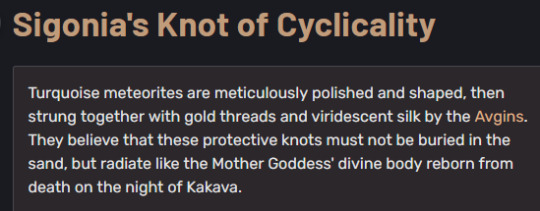
Which might call to mind another pagan culture well-known for their cyclic knots: the Celts, whose famous Celtic knots represent cycles of eternity, unity, and the interconnected nature of life itself.
The Avgin prayer to Gaiathra focuses on elements of a person's life that all might be determined by "fate"--will your blood keep flowing, will your journey be peaceful, will your schemes stay hidden? It hopes that things will be as they should, that the future ahead of you is predetermined to be a good one, and that the cycle of life decided by the goddess will be in one's favor.
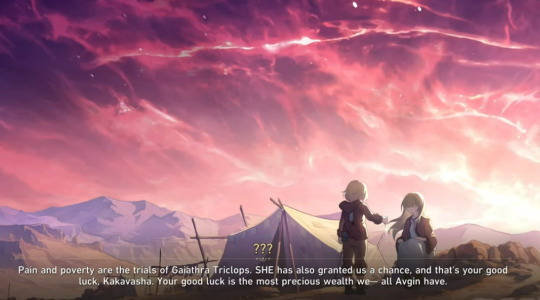
But while the Avgin hope for good things, they also strongly espouse embracing the reality of one's life, with suffering and hardships seen as manifestations of fate that should be accepted as facts of life. It is said that any society blessed by the Order ultimately falls--is it not the natural fate of all societies to one day fall? For mankind to return to the dust and be reborn anew?
Whatever will be, will be.
There is a reason--a logic--an order--to everything that happens.
I hope you can see where I'm going with this: While Sunday and Ena represent the concept of "Order" as a result of self-determination, a power "the strong" can wield to overcome the inherent chaos of reality, Aventurine and Gaiathra represent a different, older concept of "Order" (I can't help but see the entirely separate eye lurking behind Ena?): existence is not inherently chaotic but instead is foreordained, following endless orderly cycles life and death, weal and woe, rise and fall.
PHEW! Okay, so all of that to say Aventurine and Sunday make perfect parallels through a mirror darkly, even when it comes to the blessings they've been granted: One imposes order from on high; one continually rolls the dice despite knowing the inevitable outcome.
Both of their stories are entirely intertwined with the concept of fate, whether by opposing it...
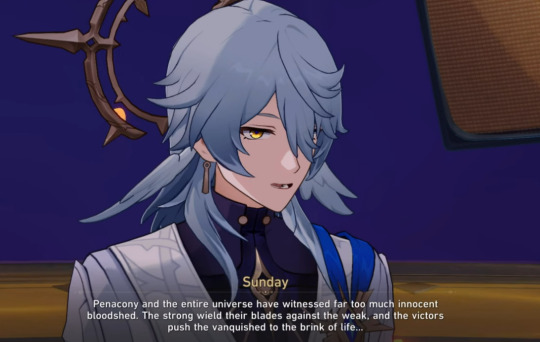
Or accepting it.

And even at the end of Penacony, we leave both Sunday and Aventurine in precarious positions. Aventurine, while ostensibly "victorious," faces another roll of the dice immediately after Penacony, when his future as a Stoneheart is called into question. Yet "fate" comes through for him again--his bet, as always, comes true. His future isn't in question--it is the question itself. What's next? He finally wants to live to find out.
Sunday, meanwhile, ends Penacony's arc in a truly difficult place. He's virtually exiled from the only home he's ever known, a flightless bird tossed out of his cage into cold hard reality. He has to find an entirely new way forward and may even be forced to reckon with an entirely new definition of "Order" itself.
The parallels between these two characters are entirely intentional and very, very blatant, and I am exceedingly interested in seeing whether their paths diverge or continue to reflect similar fates moving forward.
So uhhh... that's what I think of Sunday? 😂
#honkai star rail#aventurine#sunday hsr#gaiathra#ena the order#character analysis#hsr meta#listen#these two characters have so many parallels and obvious comparisons#like I didn't even bother to get into the bird imagery#Sunday is the Aventurine who didn't lose his sister#and didn't have to deal with the thought of being an entirely failed chosen one#until recently#AND NOW HE IS#because they're pretty much the same character into two different shades lol#which I do think is interesting#because people love and empathize with Aventurine so easily#while way more people struggle with seeing Sunday as a victim
257 notes
·
View notes